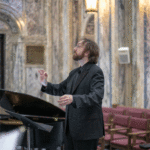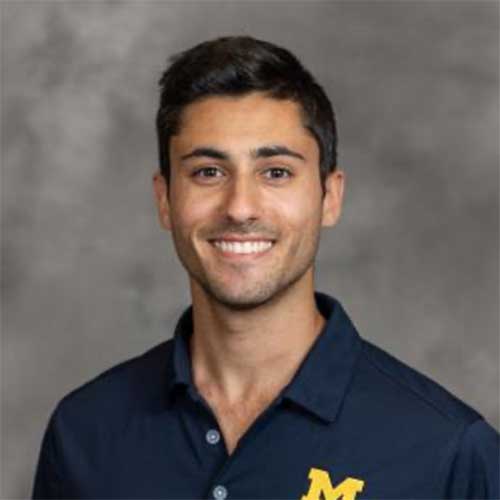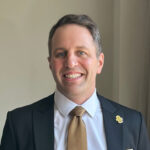
Emergency medicine resident rises to pandemic’s challenges

Zach Rotter ’14 is in the third year of his emergency medicine residency at the University of Michigan, where the coronavirus pandemic has simultaneously significantly altered his work and reinforced the basic tenets of it that he holds true. Rotter has been involved in both patient care and administrative planning during the pandemic and says that it has been stressful for a variety of reasons. “The treatments are evolving all the time, so there has been an urgency to stay up to date and to parse through all the data coming out,” he said.
Rotter became part of the effort to ensure that the hospital staff at University of Michigan remains as healthy as possible. “Every time you take care of someone with the virus, even if you follow all the protocols, you’re at risk for contracting it yourself,” he explained. “I came up with a new staffing protocol to limit the amount of people exposed to the virus.” Rotter gathered information on how many providers each coronavirus patient saw in the emergency department including technicians, doctors, and nurses. He then “created a proposal for an entirely separate unit for the coronavirus patients to limit the total amount of providers who see them,” he explained. “COVID has changed many things about the way we practice. For instance, for many COVID patients, instead of repeatedly returning to the inside of a room to give updates, they are now given via video baby monitors at one of the hospitals I work in to reduce exposures.”
Even though the pandemic has added significant and unexpected stress, much of Rotter’s day-to-day experiences as a resident remain the same. “Patients come to the hospital, and we see them. Now, there’s just a lot more protective equipment in between,” he said. “I went into emergency medicine with the mantra of anyone, anywhere, anytime, but you don’t think of a pandemic in that circumstance necessarily. The general process to take care of patients does seem very similar and residency prepares you for it. In the middle of a crisis, it just happened to be a lot more people who needed care.”
Rotter found that the opportunities he received as a biochemistry and molecular biology (BCMB) major at The College of Wooster prepared him immensely for the demands of medical school, which he completed at the University of Toledo. “Especially within my major, you were expected to work and the work that you received made you work harder. At the end you came out a more mature student for it,” he said. “When I got to medical school, I was overwhelmed, but I knew how to handle it. Without Wooster, that would have been a much more difficult experience.”
Rotter originally decided to come to Wooster and major in BCMB after receiving welcoming responses from professors in the department when he inquired about research opportunities. “I got in touch with some professors and knew that there was plenty of space available for anyone who wanted to do research in the lab,” he said. “I think if I had gone to a larger institution and emailed any of the main professors there they maybe wouldn’t have been as approachable.” Rotter remembers Mark Snider, the Robert E. Wilson Professor of Chemistry and BCMB, as a particularly welcoming professor. “Dr. Snider was the first professor who let me into his research lab my first semester freshman year and that helped me get into that whole area,” Rotter said. “It was just so easy to find a spot at Wooster.”
Rotter developed the research skills he is using now to follow new trends in coronavirus as a BCMB student at the College. “My junior Independent Study experience allowed me to hone my ability to critically analyze scientific literature. This skill seems more important now than ever,” he said. “There are new studies published daily about COVID and being able to look past the headlines and objectively assess data is something I credit Wooster for helping me to develop.”
As he continues in emergency medicine, Rotter recognizes that even without a pandemic the work is overwhelming, but he has been able to maintain perspective and gain considerable value through his interactions with patients. “There are times when work is very frustrating and busy, and you feel like you are not always making a difference. Then there are patients who you realize are grateful for the care that they can get and that sometimes you really can change a trajectory in their health,” he said. “In emergency medicine you end up treating people who are really sick, and there are oftentimes patients who you really can’t do much for, but you can make them feel a little bit better. Finding the opportunities to spend a little extra time with the patient and help them in the moment is something that helps me avoid burnout.”
Posted in Alumni on August 14, 2020.
Related Posts
Related Areas of Study
Public Health
Explore the many options and paths for those who want to be part of the world of health care
PathwayPre-Health
Guidance on course selection, research opportunities and other planning for medical and dental school
Pre-Professional AdvisingBiochemistry & Molecular Biology
Biology and Chemistry combine in an interdisciplinary program for students with a passion for molecular events.
Major

